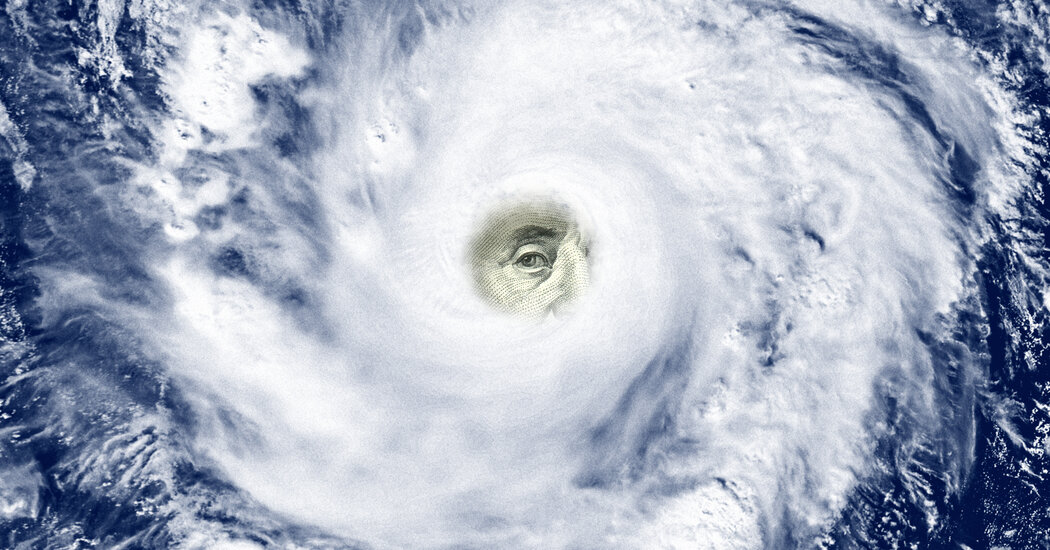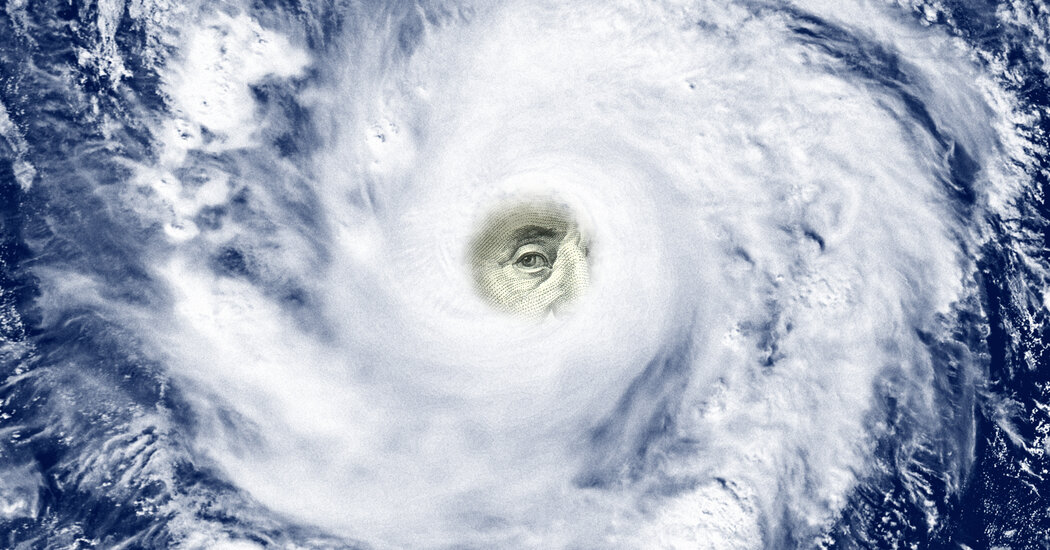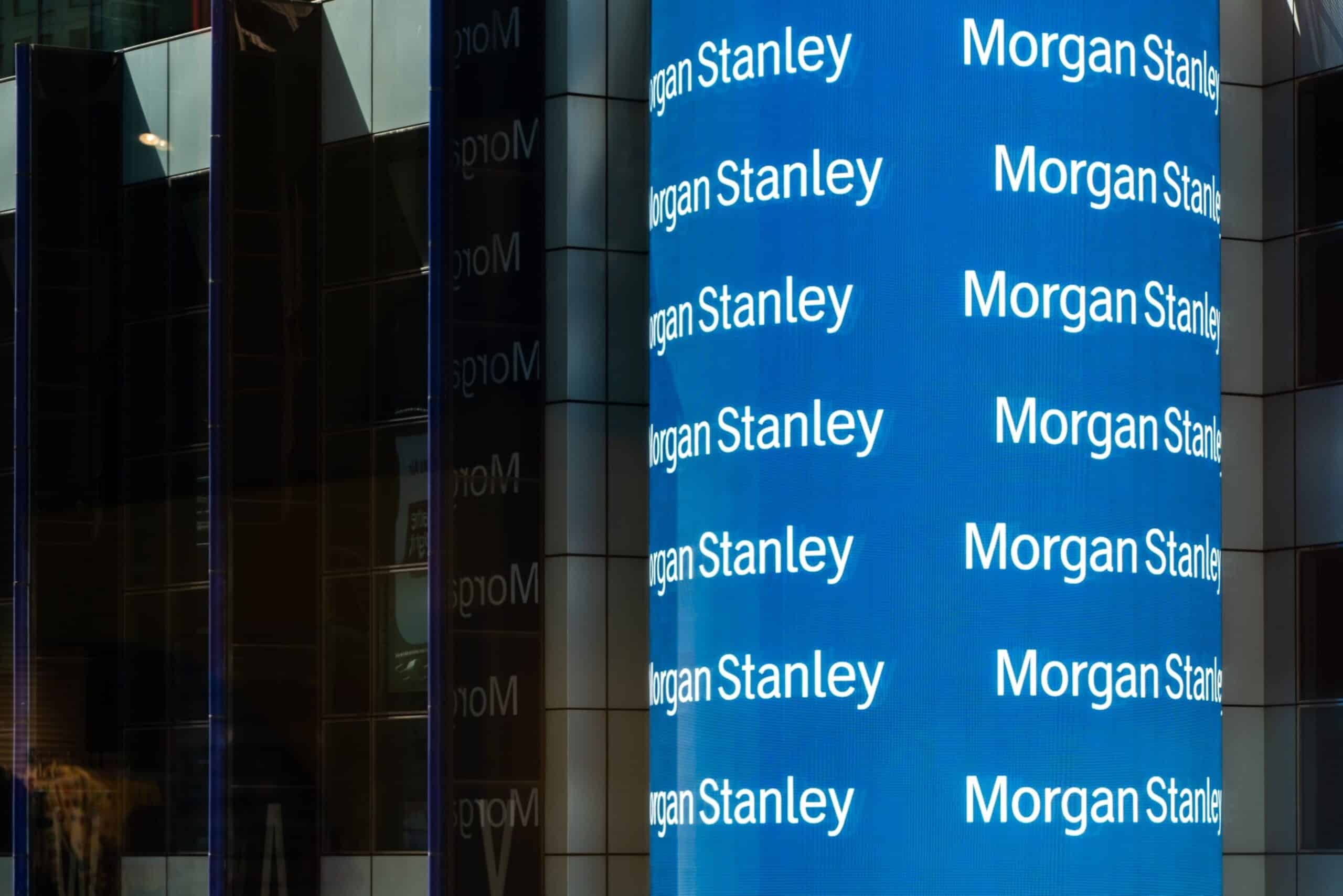
A workforce of economists not too long ago analyzed 20 years of peer-reviewed analysis on the social price of carbon, an estimate of the injury from local weather change. They concluded that the common price, adjusted for improved strategies, is considerably greater than even the U.S. authorities’s most recent determine.
Meaning greenhouse fuel emissions, over time, will take a bigger toll than regulators are accounting for. As instruments for measuring the hyperlinks between climate patterns and financial output evolve — and the interactions between climate and the financial system amplify the prices in unpredictable methods — the injury estimates have solely risen.
It’s the type of information that one may anticipate to set off alarm bells throughout the monetary trade, which intently tracks financial developments which may have an effect on portfolios of shares and loans. But it surely was exhausting to detect even a ripple.
The truth is, the information from Wall Avenue these days has largely been about retreat from local weather objectives, quite than recommitment. Banks and asset managers are withdrawing from worldwide local weather alliances and chafing at their guidelines. Regional banks are stepping up lending to fossil gas producers. Sustainable funding funds have sustained crippling outflows, and plenty of have collapsed.
So what explains this obvious disconnect? In some circumstances, it’s a traditional prisoner’s dilemma: If companies collectively shift to cleaner vitality, a cooler local weather advantages everybody extra sooner or later. However within the brief time period, every agency has a person incentive to money in on fossil fuels, making the transition a lot more durable to realize.
And relating to avoiding local weather injury to their very own operations, the monetary trade is genuinely struggling to grasp what a warming future will imply.
To grasp what’s occurring, put your self within the footwear of a banker or an asset supervisor.
In 2021, President Biden introduced the US again into the Paris Settlement, and his monetary regulators began issuing studies in regards to the danger that local weather change posed to the monetary system. A world compact of monetary establishments made commitments price $130 trillion to attempt to convey down emissions, assured that governments would create a regulatory and monetary infrastructure to make these investments worthwhile. And in 2022, the Inflation Discount Act handed.
Since then, a whole bunch of billions of {dollars} have flowed into renewable-energy tasks in the US. However that doesn’t imply they’re a certain wager for individuals paid to construct funding methods. Clear-energy shares have been pummeled by excessive rates of interest and supply-chain hiccups, ensuing within the cancellation of offshore wind tasks. When you purchased a few of the largest solar-energy exchange-traded funds in early 2023, you’d have misplaced about 20 % of your cash, whereas the remainder of the inventory market soared.
“If we take into consideration what’s going to be one of the best ways to tilt your portfolios within the route to profit, it’s actually tough to do,” mentioned Derek Schug, the pinnacle of portfolio administration for Kestra Funding Administration. “These will in all probability be nice investments over 20 years, however once we’re judged over one to a few years, it’s just a little tougher for us.”
Some companies cater to institutional purchasers, like public worker pension funds, that need combating local weather change to be a part of their funding technique and are keen to take a short-term hit. However they aren’t a majority. And over the previous couple of years, many banks and asset managers have shrunk from something with a local weather label for concern of dropping enterprise from states that frown on such issues.
On high of that, the struggle in Ukraine scrambled the monetary case for backing a speedy vitality transition. Synthetic intelligence and the motion towards better electrification are including demand for energy, and renewables haven’t saved up. So banks saved lending to grease and fuel producers, which have been churning out document income. Jamie Dimon, the chief govt of JPMorgan Chase, mentioned in his annual letter to shareholders that merely halting oil and fuel tasks could be “naïve.”
All of that’s in regards to the relative enchantment of investments that will sluggish local weather change. What in regards to the danger that local weather change poses to the monetary trade’s personal investments, by extra highly effective hurricanes, warmth waves that knock out energy grids, wildfires that wipe out cities?
There may be proof that banks and traders value in some bodily danger, but additionally that a lot of it nonetheless lurks, unheeded.
Over the previous 12 months, the Federal Reserve requested the nation’s six largest banks to look at what would occur to their steadiness sheets if a big hurricane hit the Northeast. A abstract final month reported that the establishments discovered it tough to evaluate the influence on mortgage default charges due to a lack of understanding on property traits, their counterparties and particularly insurance coverage protection.
Parinitha Sastry, an assistant professor of finance at Columbia Enterprise College, studied shaky insurers in states like Florida and located that protection was typically a lot weaker than it appeared, making mortgage defaults after hurricanes likelier.
“I’m very, very frightened about this, as a result of insurance coverage markets are this opaque weak hyperlink,” Dr. Sastry mentioned. “There are parallels to a few of the advanced linkages that occurred in 2008, the place there’s a weak and unregulated market that spills over to the banking system.”
Regulators fear that failing to know these ripple results couldn’t simply put a single financial institution in hassle however even turn into a contagion that will undermine the monetary system. They’ve arrange methods to observe potential issues, which some monetary reformers have criticized as insufficient.
However whereas the European Central Financial institution has made local weather danger a consideration in its coverage and oversight, the Federal Reserve has resisted taking a extra lively function, regardless of indications that excessive climate is feeding inflation and that prime rates of interest are slowing the transition to scrub vitality.
“The argument has been, ‘Except we will convincingly present it’s a part of our mandate, Congress ought to cope with it, it’s none of our enterprise,’” mentioned Johannes Stroebel, a finance professor at New York College’s Stern College of Enterprise.
Finally, that view may show right. Banks are within the enterprise of danger administration, and as instruments for local weather forecasting and modeling enhance, they will cease lending to clearly at-risk companies and locations. However that solely creates extra issues for the individuals in these locations when credit score and enterprise funding dry up.
“You’ll be able to conclude it’s not a risk to monetary stability, and there can nonetheless be giant financial losses,” Dr. Stroebel famous.
Whereas assessing the place the dangers lie in a single’s portfolio stays tough, a a lot nearer-term uncertainty looms: the result of the U.S. election, which may decide whether or not additional motion is taken to deal with local weather issues or current efforts are rolled again. An aggressive local weather technique won’t fare as nicely throughout a second Trump administration, so it could appear smart to attend and see the way it shakes out.
“Given the best way our system has moved to date, it’s so sluggish transferring that there’s nonetheless time to get on the opposite aspect of the proverbial fence,” mentioned Nicholas Codola, a senior portfolio supervisor at Brinker Capital Investments.
John Morton served as a local weather counselor to Treasury Secretary Janet L. Yellen earlier than rejoining the Pollination Group, a climate-focused advisory and funding administration agency. He has noticed that massive corporations are hesitating on climate-sensitive investments as November approaches, however says that “two issues are misguided and fairly harmful about that speculation.”
One: States like California are establishing stricter guidelines for carbon-related monetary disclosures and should step it up additional if Republicans win. And two: Europe is phasing in a “carbon border adjustment mechanism,” which can punish polluting corporations that need to do enterprise there.
“Our view is, watch out,” Mr. Morton mentioned. “You’re going to be deprived out there if you happen to’re left holding an enormous bag of carbon 10 years from now.”
However in the mean time, even European monetary establishments really feel strain from the US, which — whereas offering a few of the most beneficiant subsidies to date for renewable-energy funding — has not imposed a value on carbon.
The worldwide insurance coverage firm Allianz has set out a plan to align its investments in a means that will forestall warming above 1.5 levels Celsius by the top of the century, if everybody else did the identical. But it surely’s tough to steer a portfolio to climate-friendly belongings whereas different funds tackle polluting corporations and reap short-term income for impatient purchasers.
“That is the principle problem for an asset supervisor, to essentially convey the client alongside,” mentioned Markus Zimmer, an Allianz economist. Asset managers don’t have ample instruments on their very own to maneuver cash out of polluting investments and into clear ones, in the event that they need to keep in enterprise, he mentioned.
“After all it helps if the monetary trade is someway formidable, however you can not actually substitute the dearth of actions by policymakers,” Dr. Zimmer added. “Ultimately, it’s very exhausting to get round.”
In response to new analysis, the profit is bigger when decarbonization happens quicker, as a result of the dangers of utmost injury mount as time goes on. However with no uniform algorithm, somebody is certain to scoop up the instant income, disadvantaging people who don’t — and the longer-term consequence is antagonistic for all.
“The worst factor is if you happen to commit your small business mannequin to 1.5-degree compliance, and three levels are realized,” Dr. Zimmer mentioned.



